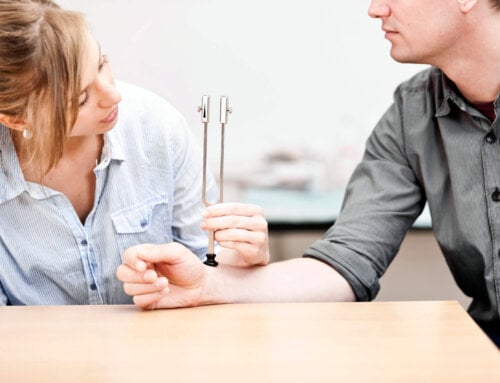The most common long term complications of uncontrolled diabetes are well known. They include heart disease, heart attack, stroke, retinopathy (eye disease), nephropathy (kidney disease), neuropathy (nerve ending disease), erectile dysfunction, peripheral vascular disease and lower limb amputation. The best way to avoid these complications is to maintain A1C levels below 7% and blood pressure controlled at 140/80 or below. Schedule and attend all medical appointments including an eye and foot exam to help lower your risk of chronic complications. Let’s examine another diabetes complication that is frequently ignored – brain function decline.
According to research published in the Journal of Alzheimer’s Disease –July 2014, “Imaging tests done on the brains of people with diabetes showed that diabetes is correlated with brain changes”. This information is not completely understood but the thought is that elevated blood sugars do affect brain function. Even without uncontrolled diabetes, brain function is known to decline with each decade after 30. This includes brain focus, problem solving and memory. As with the other long term diabetes complications, the best way to avoid brain decline is to control blood sugars and blood pressure.
Listed below are other ways to aid in improved brain health.
- The Mediterranean Diet. A documented study done at Columbia University in 2010 found that “following a plant based diet including fruits, vegetables, legumes ,nuts ,fish and olive oil was linked to fewer brain infarcts (dead areas of brain tissue) associated with dementia”. Other foods which may sharpen brain function include caffeine. Just one cup of regular coffee was shown to improve memory according to work done at John Hopkins. Pure cocoa powder sprinkled into a drink or over yogurt or eating a square of dark chocolate (over 72%) may also increase blood flow to the brain. Remember to count this healthy treat in your daily meal plan. Tomatoes mostly known for their Lycopene content (helps reduce cancer risk) contains many other vitamins and helps make platelets less sticky. This could enhance the supply of oxygen to the brain. Blueberries which are rich in anthocyanin antioxidants may increase nerve cell growth in the hippocampus. Foods rich in Omega 3 fatty acids such as walnuts and fatty fish can strengthen memory and the ability to learn and retain information. DHA also limits brain inflammation (impairs brain function), increases oxygen flow and nerve cell growth.
- Mental games, tricks, and challenges. It is documented that word games, cross word puzzles and Sudoku can help brain power. Doing a large complicated puzzle can be beneficial to brain function along with learning new information such as a foreign language or a musical instrument. Attending non-credit classes at a local university or signing up for volunteer reading programs to help children or non-English speaking adults can increase your brain power. Use tricks such as word association, a technique to build memory; this especially helps with name recognition. Repetition using visualization, writing while listening, writing in different color pens or markers are all techniques used to help further develop memory.
- Get your sleep no matter what. Sleep is extremely important for most functions of the body, but especially to help with brain power. When entering deep sleep cycles, our brain waves slow down which assists with fact storage and retention of information. Think about the expression ‘Sleep on it”. Without adequate first stages of sleep, we can not enter deep sleep cycles. Sleep deprivation or poor sleep habits can raise levels of cortisol, a stress hormone which can increase blood sugars and impair memory. More studies have found “an association with sleep loss and a larger risk of Alzheimer’s”. Most research still points to the sweet-spot of sleep being 7-8 hours per night. There are added health problems including uncontrolled blood sugars and diminished brain function when sleep is less than 5 hours or more than 9 hours per night. Sleep apnea is the most common sleep disorder found in people with diabetes. A study published in Diabetes Care -2009, found that “86% of people with type 2 diabetes also have sleep apnea”. The correlation is tied to being overweight which can lead to a thick neck with excess fat that constricts the airway. There are 2 types of sleep apnea. The more prevalent one in people with diabetes is Obstructive Sleep Apnea. This occurs when the throat or upper airway narrows and causes a decrease in oxygen. The brain causes the person to wake up, take a deep breath and open the airway. That occurs throughout the night and the person is never able to achieve deep sleep cycles. They often suffer from heavy snoring, extreme day-time fatigue and severe headaches. Central sleep apnea causes brain signals to the muscles that control breathing to become confused. Everyone suffering with these symptoms should be evaluated by a pulmonologist or sleep specialist. A sleep study can be performed in an out patient lab, in the hospital or in the comfort of your own home. The results can confirm a true diagnosis of sleep apnea. There are dental/jaw appliances, surgery to remove upper airway tissue and a new device that can be implanted to stimulate the nerve that moves the tongue so that it does not close off the airway. The most common treatment still remains the C-Pap machine (continuous positive airway pressure). The machine is attached to a nasal canula, face or head mask worn by the patient during sleep. This increases the air pressure in the throat so the airway does not collapse. Other reasons why people with diabetes may not get adequate sleep for proper brain function could be because they are experiencing symptoms of high or low blood sugars. People with high blood sugars may suffer from nighttime frequent urination, intense thirst, severe hunger and headaches which prevents deep sleep. Low blood sugars can cause night time sweats, restless sleep and extreme hunger which can affect quality of sleep. Keep glucose tablets on your bedside stand to help prevent lows. Try to check blood sugars prior to sleep to get basic information. Eat a bedtime snack consisting of a protein and carbohydrate such as cheese or peanut butter crackers. Test blood sugars at 2AM to see if your early morning hormones are creating nighttime problems and always check with your health care provider about specific high and low treatment especially during the night.
- No smoking ever. The brain (lungs and heart) cannot function optimally when you smoke cigarettes. Talk to your physician about smoking cessations classes, gum, patches or pills to help you quit.
- Exercise. Make it a brain priority! According to a recent study “there is 5% more gray matter or nerve cells in brains that burn 3,400 calories a week by moving”. Just as exercise is crucial in assisting in diabetes control, it is needed for a healthy mind. A study done at The University of Pittsburgh showed “older adults who walked briskly for 40 minutes, 3 times a week grew their hippocampus which usually has cell death as we age”. Sprinting can lead to better focus and strolling can improve inventive thinking.
- De-stress for the best sleep. Stress also increases cortisol levels which raise blood sugars and reduce your ability to sleep. Practice daily mediation, Tai chi classes, yoga or deep breathing, talk therapy, or prayer which may all enhance stress relief. Keep a worry note pad by your bed so if you wake up during the night with a running list of problems you can write them down immediately to help remove the thoughts until the next morning. Relax by listening to white noise like an overhead whirling fan or purchase a white noise machine. There are machines that offer continuous bird, wind, ocean or waterfall sounds. Consider downloading the SmartPhone app called ‘Sleepmaker Rain’ which may lull you to sleep – it is free on IPhones and Android devices. Belly breathing or practicing progressive muscle relaxation by tensing and releasing each muscle from the forehead to the toes may help you sleep by turning off the brain switch and letting you fall into a calmer state. Mental focus and nighttime visualization can help with sleep problems. Visualize a sunset, a starry night or any picture that promotes relaxation in your mind. Think through an entire yoga pose or salutation in sequence to promote calmness and sleep. If you are still wide awake after practicing these different techniques, get out of bed and try a small glass of warm milk, look through a magazine or watch some mindless TV. You do not want to associate insomnia with your bed and bedroom.
Many of these sleep techniques to improve sleep quality will be trial and error. It is documented that proper sleep along with exercise, no smoking, keeping your mind engaged and blood sugar/blood pressure control can increase brain function whether you have diabetes or not!
NOTE: Consult your Doctor first to make sure my recommendations fit your special health needs.













I keep it low, my daily numbers that is.
I’m a lot of times lower than I am ever high, and a lot of times I’m real low; let’s say in the 50’s, 40’s, and 30’s.
And although this sometimes causes me temporary confusion, in the final analysis I think I’m sharper and clearer for it.
This is what the shaman, medicine men, and witch doctors used to do when they wanted to contact spirits, although to get blood glucose levels this low they’d fast.
It’s interesting science.
My doctor isn’t the biggest fan of me doing this, but when he checks my ‘meter, and you should always bring your meter in with your doctor’s visit, and he monitors my A1C figures, he can’t really dispute the results.
And you get used to being low. Now, if I’m in the 80’s, 70’s, and 60’s, I think I’m in a high profile figure.
Hi Ross,
I find your comment interesting but I must agree with your physician’s opinion. I would not encourage any of my patients to keep their blood sugars at those low levels (30s – 70s) to increase mental acuity. Your A1C level may seem fine since it is an average of your 3 month period, but that also tells me that you may be having some rebound highs as well. Most patients with diabetes will become agitated, jittery, weak, along with other signs of hypoglycemia with numbers in the 70s or below. I do agree each person will have different experiences, but many will certainly pass out at those low levels. I would try some of our suggestions to help with brain function. You may be surprised and delighted since these suggestions will also help with your overall health!
Best of luck,
Nurse Robbie